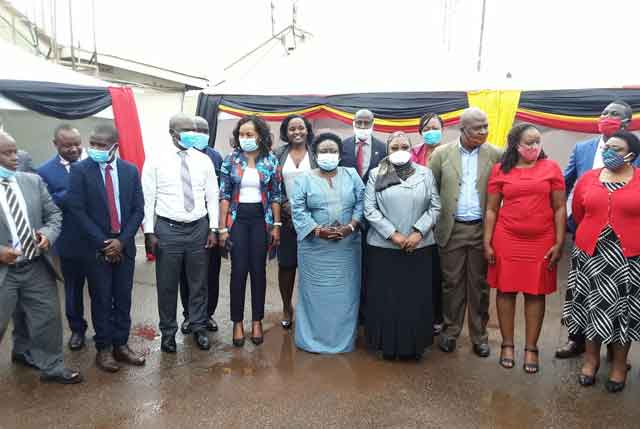
Kampala, Uganda | THE INDEPENDENT | Non-Governmental Organizations under their umbrella Uganda National NGO Forum have asked the Electoral Commission to expand the means through which candidates will campaign in forthcoming elections.
The NGOs say that the media landscape and ownership in Uganda cannot allow the use of the media as the only means of reaching out to voters, as outlined in a revised roadmap released by the Electoral Commission last month. In the roadmap, the EC banned open-air campaigns and advised all people aspiring for political offices to utilise virtual collaboration tools to reach the electorate.
EC Chairman Justice Simon Byabakama Mugenyi said that the decision was intended to protect Ugandans from coronavirus disease, a respiratory condition that spreads through person-person contact. However, the NGO forum advised the commission to invest in monitoring offline campaigns and ensure that all campaigners follow Standard Operating Procedures.
Sarah Bireete, the Executive Director of Centre for Constitutional Governance said the Electoral Commission should consider limiting public meetings to about 200 people, instead of sacrificing the electoral process in the hands of the media. She was speaking at a meeting organized by the Electoral Commission to obtain views on the revised roadmap from civil society actors.
Patricia Munabi, the Executive Director of the Forum for Women in Democracy who read a joint statement at the meeting wondered how a country that is not fully covered by television and radio spectrum can think of using the media as a means of reaching the electorate. She said that the is likely to disenfranchise women and the youth who rarely have access to the media.
She also faulted the Electoral Commission for failing to consult all stakeholders before coming up with the revised roadmap.
In response Hajati Aisha Lubega, the Electoral Commission vice-chairperson said that other campaign modes other than rallies are still applicable and can be used even in the face of COVID-19.
“We have not done away with flyers, posters and one on one discussions. If someone comes to your house, it is okay,” Lubega said. She, however, disagreed with suggestions of allowing a limited number of people to attend public rallies saying this will be hard to enforce.
However, Lubega maintains a position that the law doesn’t require them to consult before coming up with a roadmap.
********
URN
 The Independent Uganda: You get the Truth we Pay the Price
The Independent Uganda: You get the Truth we Pay the Price



